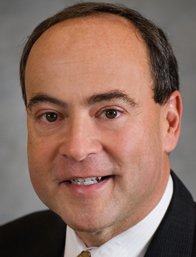Guest Editorial: By Clint Bolick
Letter to Carefree
By Clint Bolick | July 29, 2009
 July 24, 2009
July 24, 2009
Tom Chenal, Carefree Town Attorney
Sherman & Howard, LLC
7047 E. Greenway Pkwy., Suite 155
Scottsdale, AZ 85254
RE: Recall David Schwan Campaign
Dear Mr. Chenal:
I write to express concerns regarding recent reported actions and policies of the Town of Carefree that appear to be directed at the Recall David Schwan campaign and at Ryan Ducharme, the campaign’s treasurer. Those actions and policies may violate the civil and constitutional rights of the recall campaign’s principals and thereby expose the town to substantial liability.
Of greatest concern is the town’s determination to not allow the campaign to post a “Recall David Schwan” sign on the outside of their private office space. The sign both identifies the organization occupying the office space and expresses a political sentiment. According to Art. VII, § 8.06 of the Carefree Zoning Ordinance, “one temporary political sign per lot per candidate or issue” is allowed so long as the sign meets all of the requirements of the section and is removed within seven days of an election result. As we understand it, the campaign’s sign met all of the applicable requirements, but the town ordered its removal. Continued refusal to allow a sign would indicate selective enforcement of the ordinance. As the U.S. Supreme Court has declared, “it is firmly settled that under our Constitution the public expression of ideas may not be prohibited merely because the ideas are themselves offensive to some of their hearers.” Spence v. State of Wash., 418 U.S. 405, 412 (1974).
This action appears to be part of a pattern and practice of suppressing political expression generally and the campaign specifically. We are informed that the town invoked its emergency power to amend ordinance 11-3-2 to prohibit political signs in the public rights of way, while allowing the town to post signs in those spaces. A content-based regulation of political speech in a public forum is valid only if it can survive strict scrutiny, which requires a compelling governmental interest achieved by the narrowest possible means. See, e.g., Burson v. Freeman, 504 U.S. 191, 198 (1992). Given that political speech is at the core of the First Amendment’s protections, it would be virtually impossible for an ordinance that places political speech in a disadvantageous position relative to other types of speech to satisfy strict scrutiny. The Ninth Circuit has held that “[c]ommunications by signs and posters is virtually pure speech,” and that when “signs are erected adjacent to ‘traditional first amendment forums such as public sidewalks and other thoroughfares’,” the “expressive activity may be restricted only for weighty reasons.” Baldwin v. Redwood City, 540 F.2d 1360, 1366 (9th Cir. 1976). The court observed that restrictions on the “size, and placement of signs . . . directly infringe the First Amendment rights of individuals who want to express political opinion in a traditional First Amendment forum.” Id. That principle applies both to the restriction on political signs in public rights of way and to the sign on the campaign’s office space.
We are also informed that the town has taken action to prevent Mr. Ducharme from collecting petition signatures on public property in front of City Hall. If true, such actions are a blatant violation of both Mr. Ducharme’s freedom of speech rights and his constitutional right to petition for redress of grievances. When an individual’s constitutional rights are violated willfully, maliciously, or wantonly, a court may award punitive damages under 42 U.S.C. § 1983. Smith v. Wade, 461 U.S. 30, 56 (1983). Of course, under some circumstances, an individual public official may be held personally liable under § 1983.
I hope you will agree that a town’s actions in the context of a recall campaign are especially sensitive and susceptible to an inference that they are taken for retaliatory reasons and/or to protect incumbent officials. Such circumstances would invite an award of punitive damages. When an elected official is the subject of a recall campaign, we believe that the town should take every possible action to ensure that citizens enjoy every avenue of political redress to which they are entitled under the state and federal constitutions. We urge you to carefully examine what has transpired to insure that the campaign’s rights are protected and that the city abides its constitutional limits.
Thank you very much for your prompt attention to this urgent matter.
Very sincerely,
Clint Bolick
Director, Scharf-Norton Center for Constitutional Litigation
cc: Gary Neiss, Town Administrator
